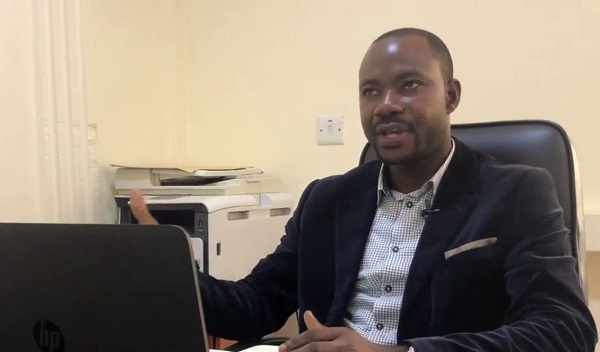Economist, Dr. Adu Owusu Sarkodie, is calling for a change in the structure of the economy if the country is to curb the perennial fall in the value of the cedi, beyond the prudent fiscal management of the economy.
According to him, government must stimulate exports and cut down on imports to enable the Central Bank have enough foreign exchange to meet dollar demands.
In its paper on “As long as the fundamentals of the economy are weak, the exchange rate will continue to expose it”, Dr. Owusu Sarkodie said the fundamentals of the economy are not strong.
“The Ghanaian economy has not transformed significantly enough to industrialise and add value to its exports. It is still an import-dependent economy. This is the major cause of the cedi depreciation since independence. The fundamentals have not improved significantly over the years”.
"This situation is still happening in recent times. Investors are selling the Ghana dollar-denominated domestic bonds and other international bonds. The government cannot borrow from the euro bond market because of downgrading by the international credit-rating agencies. The combined effect of this is that the Bank of Ghana doesn’t have enough foreign exchange to meet the rising demands for forex causing the recent depreciation of the cedi”, he explained.
Furthermore, Dr. Owusu Sarkodie said the long-term and everlasting solution is to export more and cut down imports so that the Central Bank can have enough foreign exchange at its disposal to meet demands, adding “as it has been the tradition for most governments, though not advisable, the short to medium-term measures is for the government to borrow from the international capital market, issue dollar-denominated domestic bonds, and deplete the international reserves.”
“Government can only have access to the Eurobond market after they have demonstrated to the investment community their ability to mobilize domestic revenue to service debt. As a matter of urgency, government will then have to pass the e-levy bill in the shortest possible time to access Eurobond. That is why almost everything seems to be linked to the proposed tax on electronic transactions (E-Levy) and why the government is so obsessed with its passage”, he noted.
In addition to E-Levy, he said the government can also demonstrate its ability to mobilise domestic revenue by paying attention to other sources of revenue such as property tax, tax exemptions, and natural resources.
Latest Stories
-
Ghana ranked 7th globally as biggest beneficiary of World Bank funding
6 mins -
IMF board to disburse $360m to Ghana in December after third review
11 mins -
Former Bono Regional NPP organiser donates 13 motorbikes to 12 constituencies
17 mins -
Securities industry: Assets under management estimated at GH¢81.7bn in quarter 3, 2024
21 mins -
Gold Fields Ghana Foundation challenges graduates to maximise benefits of community apprenticeship programme
2 hours -
GBC accuses Deputy Information Minister Sylvester Tetteh of demolishing its bungalow illegally
2 hours -
Boost for education as government commissions 80 projects
2 hours -
NAPO commissions library to honour Atta-Mills’ memory
2 hours -
OmniBSIC Bank champions health and wellness with thriving community walk
2 hours -
Kora Wearables unveils Neo: The Ultimate Smartwatch for Ghana’s tech-savvy and health-conscious users
3 hours -
NDC supports Dampare’s ‘no guns at polling stations’ directive
3 hours -
Police officer interdicted after video of assault goes viral
3 hours -
KNUST’s Prof. Reginald Annan named first African recipient of World Cancer Research Fund
3 hours -
George Twum-Barimah-Adu pledges inclusive cabinet with Minority and Majority leaders
4 hours -
Labourer jailed 5 years for inflicting cutlass wounds on businessman
4 hours

